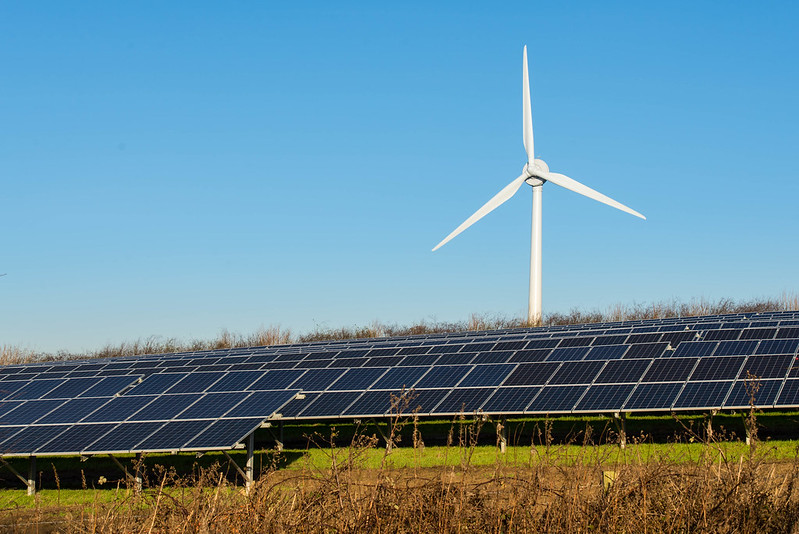
This bill could give Washington tribes, communities more say in wind, solar development
Listen
Read
More wind and solar projects need to be built to meet Washington’s carbon-free energy goals. A new state bill could give local residents and tribes more say in where projects are built.
Washington state Rep. Mary Dye, R-Pomeroy, said the governor has too much say in large-scale energy projects.
“ Developers of wind and solar can ignore concerns of local residents, both tribal and nontribal, by seeking approval through the development through (the Energy Facility Site Evaluation Council),” Dye said at a public hearing for the House Environment & Energy Committee on Monday.
Right now, developers can get projects recommended by the state’s Energy Facility Site Evaluation Council, or EFSEC. The governor has the final say in those projects.
But Dye’s proposed bill, House Bill 1188, would add one more step. At the same time the governor received the council’s recommendations, so would affected counties and federally recognized tribes. Counties and tribes would have to approve the wind and solar projects before the governor gives projects a green light.
“ The local concerns can be ignored, and it’s causing and creating systemic injustice and significant inequities for rural residents who are disparately impacted by the sighting of industrial developments in zoned ag, in open space, in protected habitat,” Dye said. “And (it’s) permanently affecting the well-being of our communities that are land dependent and place bound.”
Local communities would have 90 days to approve, reject or ask for changes to the recommendations. The new requirements would not retroactively apply to projects.
One project that many residents in eastern Washington and tribes have spoken out against is the Horse Heaven Clean Energy Center, which would be built outside the Tri-Cities.
Karen Brutzman, a Kennewick resident, testified at the public hearing. She said she wished that the project had more consideration for local people’s concerns.
Gov. Jay Inslee approved the Horse Heaven Clean Energy Center in November, after pushing back on EFSEC’s initial recommendations to reduce the project’s size. Local activists, Benton County leaders and the Yakama Nation have appealed the decision.
“(Inslee’s) failure to do his duty and responsibility to follow the recommendations reminds us why we need laws to protect local voices from being drowned out by executive power,” Brutzman said at the hearing.
Most people who testified at the public hearing asked the committee to pass the bill, saying there needs to be more community say in large-scale wind and solar projects that would be built nearby.
However, the Association of Washington Business opposed the bill.
“This bill raises the uncertainty for renewable project developers and makes it more difficult to build the projects our state needs to meet our clean energy goals,” said Peter Godlewski, the association’s government affairs director for energy, environment and water.
Another bill that’s been prefiled in the Washington Senate by state Sen. Matt Boehnke, R-Kennewick, would remove the governor from the final EFSEC approval process, giving the council the final say.















